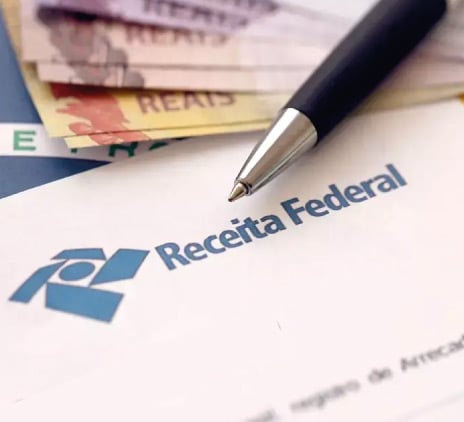- ESG
- Abordagens customizadas e programas
- Family Business
- China Desk
- GT Sports
- Women Beyond Business
- GT HUB - Startups
- Escritórios de advocacia
- Unlock Brasil
-
Atestação SOC
Opinião independente que atesta o compromisso de empresas prestadoras de serviços com controles internos sólidos
-
Auditoria e revisão das demonstrações financeiras
Asseguração da credibilidade das atividades contábeis da sua empresa em acordo com a legislação e normas vigentes
-
Asseguração de relatórios não financeiros
Nossa abordagem permite aumentar a credibilidade dos relatórios, refletindo positivamente na reputação da empresa
-
Asseguração de relatos integrados e relatórios de sustentabilidade
Ferramenta diferencial de prestação de contas e de demonstração do engajamento das organizações com relação às práticas sustentáveis
-
Assessoria em temas contábeis
Profissionais especializados para auxiliar na qualidade, comparabilidade e transparência das informações financeiras no seu negócio
-
Compliance contábil, trabalhista e fiscal
Diagnósticos e assessoria permanentes em temas contábeis, fiscais e trabalhistas, bem como quanto aos controles internos relacionados
-
Diagnósticos pré-auditoria
Diagnósticos voltados para preparação das empresas, capazes de oferecer suporte de acordo com o propósito e necessidades do negócio
-
Laudos de avaliação para fusões, cisões e incorporações
Avaliação técnica dos ativos líquidos a valor contábil ou dos ativos líquidos contábeis ajustados a preços de mercado
-
Mercado de capitais
Análises completas dos processos da sua empresa e suporte na preparação para operações estratégicas por meio de captação
-
Solicite uma proposta →
Como podemos auxiliar a sua empresa? Nossa missão é crescer junto com você. Entre em contato com nosso time

-
Consultoria empresarial
Abordagens compatíveis com tecnologias que suportam a tomada de decisões corporativas e estimulam a inovação
-
Cybersecurity
Mapeamento de riscos digitais, desenvolvimento de programa de prevenção às ameaças, monitoramento e elaboração de plano de resposta
-
Estratégia & Transações
Desempenho das operações e estrutura de capital para viabilizar transações corporativas mais eficientes
-
FIDS – Forensic, Investigation & Dispute Services
Identificação, proteção e prevenção de riscos para preservar a integridade e segurança empresarial
-
GT Digital
Entendemos as necessidades específicas de cada empresa e aplicamos uma profunda experiência em tecnologia, dados, nuvem e automação.
-
GRC - Governança, Riscos e Compliance
Gerenciamento de riscos, melhoria de processos para alcançar objetivos estratégicos
-
Administração Judicial em Recuperação de Empresas
Confira todos os detalhes e diferenciais dos nossos serviços de Administração Judicial em Recuperação de Empresas
-
Reestruturação e Recuperação de Empresas
Planos assertivos e ações ágeis para recuperar a estratégia e desempenho da sua empresa
-
Solicite uma proposta →
Como podemos auxiliar a sua empresa? Nossa missão é crescer junto com você. Entre em contato com nosso time

-
Global Mobility Services
Programas de mobilidade internacional em conformidade com a legislação fiscal local e custos otimizados
-
IRPF 2024 - Declaração do Imposto de Renda Pessoa Física
Conte com os nossos especialistas para declarar seu patrimônio com segurança
-
Preço de transferência
Revisão ou elaboração dos cálculos que permitam o mais assertivo cumprimento em operações com o exterior
-
Trabalhista e previdenciário
Auxílio em todas as etapas da governança trabalhista e previdenciária, identificação de oportunidades e riscos de acordo com o momento atual e as perspectivas futuras
-
Tributos diretos
Estratégias ágeis de atendimento às legislações e viabilização de incentivos fiscais regionais e setoriais
-
Tributos indiretos
Suporte especializado para mitigar riscos decorrentes da complexidade e diversidade de legislações e jurisprudências e identificar oportunidade de otimização da carga tributária
-
Tributos internacionais
Análise e planejamento de cenários em diferentes jurisdições, com integração ao cenário brasileiro
-
Solicite uma proposta →
Como podemos auxiliar a sua empresa? Nossa missão é crescer junto com você. Entre em contato com nosso time

-
Escrituração contábil
Soluções integradas e automação dos processos contábeis para prevenir autuações perante as autoridades fiscais e reduzir custos
-
Compliance tributário
Organização dos processos fiscais com especialistas dedicados para evitar inconsistências e identificar oportunidades de otimização da carga tributária
-
Folha de pagamento
Terceirização da administração da folha de pagamento, garantindo compliance com todas as atualizações legais, governamentais e sindicais
-
Gerenciamento financeiro
Controle das contas a pagar e a receber para viabilizar iniciativas de investimento e outras estratégias focadas no core business
-
BPO
Agilidade e economia os negócios por meio de metodologias próprias e automação de processos utilizando inteligência artificial
-
Soluções para startups estrangeiras
Planejamento e estruturação conforme as exigências tributárias locais com rapidez e eficiência para trazer solidez ao negócio
-
Business Intelligence
Criação de indicadores customizados de acordo com as necessidades e desafios dos negócios, gerando respostas ágeis e eficazes às mudanças do mercado
-
Solicite uma proposta →
Como podemos auxiliar a sua empresa? Nossa missão é crescer junto com você. Entre em contato com nosso time

-
Auditoria Independente
Avaliação de controles internos e características operacionais para alinhar às boas práticas de governança
-
Consultoria Contábil
Foco em instrumentos financeiros e contratos de seguros, cumprimento de requisitos e mudanças regulatórias
-
Consultoria Financeira
Especialidade técnica e soluções tecnológicas para identificar oportunidades operacionais e de negócios
-
Auditoria Interna
Avaliação de gestão de riscos e controles internos, incluindo aspectos socioambientais para elevar a performance
-
Serviços Atuariais
Soluções eficazes para auxiliar o mercado de transferência de riscos com normas para provisões e solvência
-
Modelagem de Riscos
Predição com estatística e machine learning aplicados à gestão de riscos
-
Soluções em Tecnologia
Otimização de processos e controles, atendimento de requerimentos regulatórios e melhor eficiência operacional
-
Open Banking
Integração dos aspectos de governança e tecnologia para o processo de adesão e manutenção junto ao Bacen
-
PIX
Inovação e inclusão no sistema de meios de pagamento
-
Gestão eficiente da cadeia de suprimentos hospitalar
Consolidação, redução de custos de aquisições, padronização e otimização do processo de compras
-
Auditoria interna hospitalar
Solução de data analytics para execução de auditoria interna focada no setor da saúde, garantindo maior agilidade e precisão na tomada de decisões
-
RN 443 – Implantação geral e emissão de PPA
Maiores controles internos e gestão de riscos para fins de solvência das operadoras de planos de assistência à saúde
-
RN 452 – Apoio da estruturação da auditoria interna de compliance
Avaliação de resultados das operadoras de saúde para assegurar conformidade legal em seus processos
-
Relatório SOC 2
Com Relatório SOC, certificação e parecer independente é possível agregar credibilidade aos beneficiários do setor de saúde sobre os processos internos e controles
-
Energia e tecnologia limpa
Soluções para para geradores, investidores ou concessionárias prestadoras de serviços públicos que desejam investir no mercado de energia sustentável.
-
Petróleo e Gás
Auxiliamos sua empresa na procura de opções de financiamento, gerenciamento de risco e na criação de legitimidade local para operar.
-
Mineração
Construção de força de trabalho com mais mobilidade, entendimento das alterações da legislação e elaboração de processos para gerenciar riscos de corrupção.
-
Work-life balance e benefícios
Promover ambientes de trabalho saudáveis e que atendam às mais diversas necessidades pessoais e profissionais de nossos colaboradores exige flexibilidade nas práticas e políticas internas.
-
Aprendizado e desenvolvimento
Mantemos uma cultura de aprendizado e crescimento contínuo, encorajando nossos profissionais a aproveitar oportunidades e atingir todo o seu potencial.
-
Programa de Diversidade
Acreditamos no poder da diversidade e do respeito na construção de uma sociedade mais justa, harmoniosa e tolerante. Pensando nisso, a Grant Thornton Brasil criou o Programa de Diversidade e Inclusão.
-
Sustentabilidade
Acreditamos na necessidade das organizações integrarem aspectos econômico-financeiros, de governança e socioambientais em seus processos de gestão para viabilizar ambientes de negócios melhores e mais transparentes.
-
Processo de candidatura
São apenas cinco etapas para começar sua carreira na Grant Thornton!
For the first time, Brazilian justice fulfills a search and seizure warrant in the metaverse
The Ministry of Justice and Public Security executed, for the first time, a search and seizure warrant in the metaverse. The operation took place within the scope of the fourth edition of Operation 404, which targets digital piracy.
The action carried out in conjunction with the Civil Police of 11 states of the federation fulfilled 30 search and seizure warrants against suspected of transmitting or facilitating the broadcasting of content protected by copyright law.
Eleven people were arrested, four in compliance with a temporary arrest warrant and seven in flagrante delicto. According to the report of the operation, 300 applications were programmed to steal user data, such as banking information, passwords, photos and e-mails.
Official estimates show that the damages caused by the investigated crimes reach R$ 366 million per year.
MERCOSUR and Singapore Initial FTA
According to a press release of July 21st 2022, published by the Ministry of Trade and Industry of Singapore, MERCOSUR (Argentina, Brazil, Paraguay and Uruguay) and Singapore have substantively concluded the negotiations for a free trade agreement (FTA) between them.
This was jointly announced by videoconference on July 20th 2022, on the sidelines of the MERCOSUR Summit 2022 held in Paraguay.
Federal Revenue of Brazil raises more than 181 billion in June 2022
The total collection of Federal Revenues of Brazil (RFB) reached, in June 2022, the amount of R$ 181 billion, registering a real increase (IPCA) of 17.96% in relation to June 2021.
In the accumulated period from January to June 2022, the collection reached the amount of R$ 1.1 trillion, representing an increase by the Consumer Price Index (IPCA) of 11.00%.
It is important to note that this is the best collection performance since 1995, both for the month of June and for the semester.
As for the Revenues Administered by the RFB, the amount collected in June 2022 was R$ 174.3 billion, representing a real increase (IPCA) of 17.12%, while in the accumulated period from January to June 2022, the collection reached R$ 1 trillion, registering a real increase (IPCA) of 9.00%
The increase observed in the month of June can be explained, mainly, by the growth in the collection of Corporate Income Tax (IRPJ) and Social Contribution on Net Income (CSLL).
Research reveals that Brazil has one of the best environments for public-private partnership in Latin America
Brazil, even with several challenges, has one of the best environments for the development of public-private partnerships (PPP) in Latin America.
The conclusion is the report made by the Inter-American Development Bank (IDB) and by The Economist magazine.
The authors of the survey did not create a ranking, but divided the 26 countries studied into groups. Brazil is in the “developed” category, with a score between 60 and 79.9. In the same category are Chile, Uruguay, Peru, Colombia, Panama and Costa Rica. No country on the continent was included in the “mature” category, with a score between 80 and 100.
Provided for in Law 11.079/2004, the PPP represents a way for the public power to provide a service to the private sector. The private company makes investments and performs a service for the public power, being paid in two ways: fully by the State (at no cost to the citizen) or paid partially by the State and partially by the user of the service, through a fee.
Project seeks to eliminate Income Tax on the purchase of debentures by non-residents in the country
The National Congress must approve a bill that exempts the Income Tax (IR) from investments by non-resident investors in Brazil in the purchase of bonds (debentures) issued by companies in the country.
The idea is that the exemption would expand the access of Brazilian companies to foreign capital, as long as they are debt instruments via the capital market.
Today, investments by non-residents in stocks and government bonds are already exempt. The idea is to give the same tax treatment to transactions with securities of private companies.
One of the justifications is that the different IR rates currently levied on income from investing resources by non-residents in Credit Rights Investment Funds (FIDCs) and in securities directly generate serious distortions.


